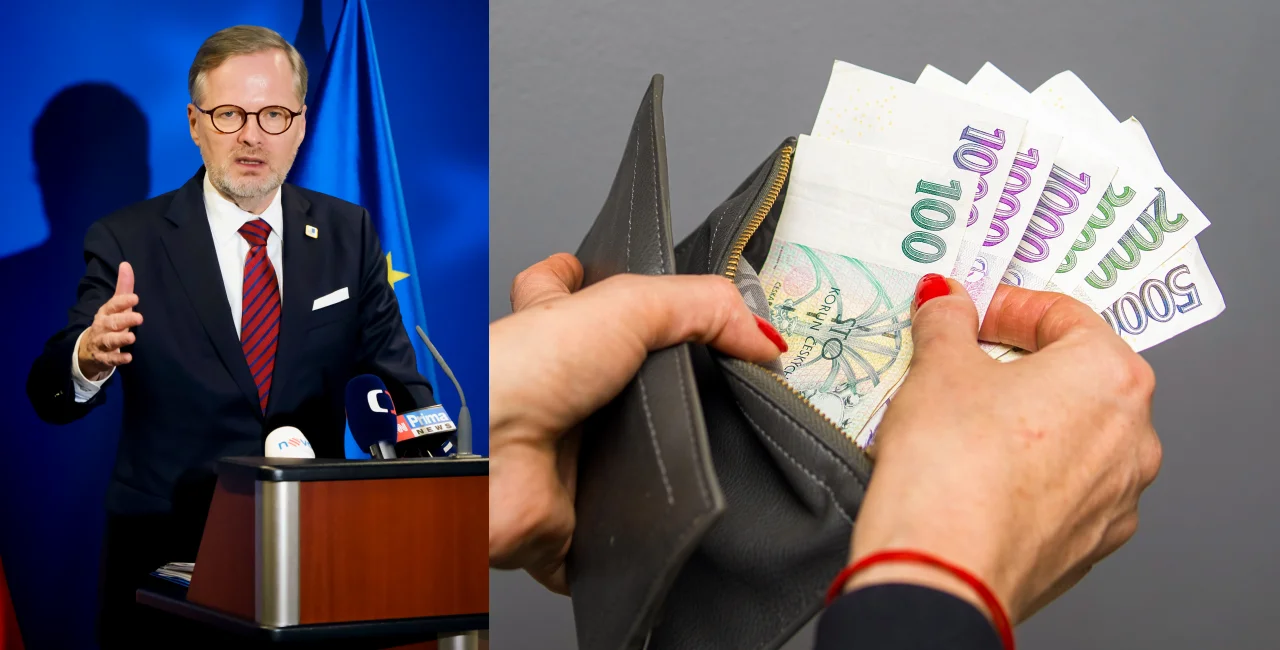Czech Prime Minister Petr Fiala recently made a bold promise stating that, ahead of the country’s general election in October 2025, people in Czechia will have “salaries like in Germany” in the next four years. He also claimed that people in the near future would be “just as well off” as residents in Austria and Germany. Analysts and economic experts, however, are skeptical.
“I need eight years [two terms] and we will have top universities and companies. We will no longer be an assembly plant,” the prime minister told Czech Television, referring to the country’s dependence on its export-oriented automotive sector.
If these salary pledges were to come true, workers’ gross earnings in Czechia would more than double within the next five years. At the moment, the average nominal wage in the Czech Republic hovers at near CZK 46,000. In the capital, this stands at a significantly higher CZK 56,144.
It is worth noting that, at the moment in Germany, the annual average gross salary is over EUR 50,000—this is over CZK 105,000 per month. At the moment, a typical German worker earns 2.3 times as much in euros and an Austrian worker 2.5 times as much as a Czech worker.
Nowhere near realistic, analysts say
Although the average Czech wage has shown solid growth in the recent couple of years—growing by over 6 percent year on year in the second quarter of 2024—many analysts and commentators have found Fiala’s promises as hollow at best, and deluded at worst.
"The idea that any economy would be able to catch up with its backwardness in four years is even less achievable than the plan of the Ministry of Industry and Trade to be among the top ten European economies by 2040," economist and data analyst of financial services firm Datarun Petr Bartoň damningly told Czech media outlet Novinky.cz.
Similarly, economist Jakub Komárek from PAQ Research noted that the Czech Republic has seen the largest drop in real wages in the EU since 2020.
“Catching up with salaries in the West is only possible through an economy with higher added value…this requires real investments in increasing work productivity, reforms in the tax system, increasing the motivation to work, and fundamental changes in secondary education,” Komárek told Novinky.cz. At the moment, Czechia has not done enough in any of these categories, according to Komárek.
Trinity Bank economist Lukáš Kovanda has also hit out against Fiala’s claims. "The reality is, on the contrary, that both Germany and Austria in particular have outpaced the Czech Republic in terms of wages over the last five years.” What’s even worse, Kovanda says, is that the wage gap between Czechia and its western neighbors is wider than in 2019.
The 'exemplar' is also pained
Another noteworthy detraction of Fiala’s claims is the current state of the economy in the very country that Czechia is trying to emulate—rather ironically. Germany’s finances are in particularly poor shape at the moment amid political turmoil and an ailing manufacturing industry. As Czechia’s economy is closely tied to that of Germany's, analysts have unanimously agreed throughout this year that Germany’s economic downturn would almost certainly hit Czechia hard, thereby negatively affecting wage growth.
Fiala made his optimistic comments in light of the recently submitted state budget for 2025, which the prime minister claimed would be “record breaking” in terms of investment. However, it posits running a deficit of CZK 241 billion.
David Marek, a Deloitte analyst who is a member of the government’s National Economic Council and an aide to President Petr Pavel, has come out and specifically advised the president not to sign the budget into law.












 Reading time: 3 minutes
Reading time: 3 minutes 

























